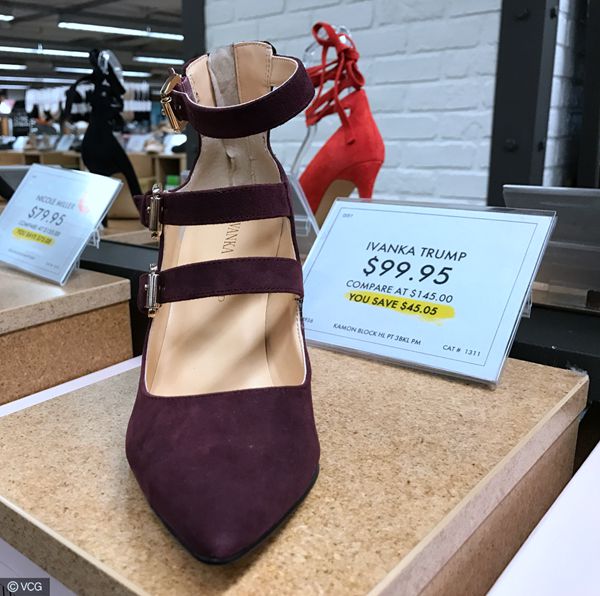The U.S. department store franchise Nordstrom recently decided to stop selling Ivanka Trump’s clothing and accessory line. The retailer said that it won’t purchase products from the Ivanka Trump line based on the brand’s performance.
 |
|
Ivanka Trump’s line of shoes on sale at a U.S. store. [Photo/VCG] |
This move irritated U.S President Donald Trump. “My daughter Ivanka has been treated so unfairly by @Nordstrom. She is a great person — always pushing me to do the right thing! Terrible!” Trump tweeted on his private Twitter account and the official @POTUS account. The Twitter criticism led to a brief fall in Nordstrom’s stock.
However, the trademark of Ivanka has become a hot commodity in China. Many Chinese firms have applied to use Ivanka Trump’s name as their trademark for their business. According to data from the Trademark Office of the State Administration for Industry and Commerce, there are 227 current applications to use “Ivanka” as a trademark on products ranging from diapers to cosmetics.
Among them, a Beijing-based company that provides weight loss services filed 55 applications to use the Chinese characters of Ivanka as its trademark for many products. Furthermore, the company also submitted 10 applications to use “IVANKA”, the English name of Ivanka Trump, for its products.
The rush to trademark Ivanka’s name is linked to her rising popularity in China, particularly after the presidential election. Most of the applications are still being processed, and it’s not clear whether any of them will be granted trademark rights.
According to Liu Kai, a lawyer from Hunan Province, foreign names or Chinese translations of such names are permitted as trademarks in business if they are not the names of public figures. However, it is easier to get the applications approved if a public figure is not popular in China.
“But now, the Chinese know Ivanka Trump because she is the first daughter in the U.S.,” said Liu Kai. According to a recent judicial interpretation by China’s Supreme People’s Court on Jan. 11, 2017, it is forbidden to use the names of public figures in trademarks, which the top courts say could “cause negative influence”.
“Therefore, I think it is impossible for these applications to get approved by the authority if the first daughter intervenes,” said Liu Kai.
Follow this news feed: East Asia





